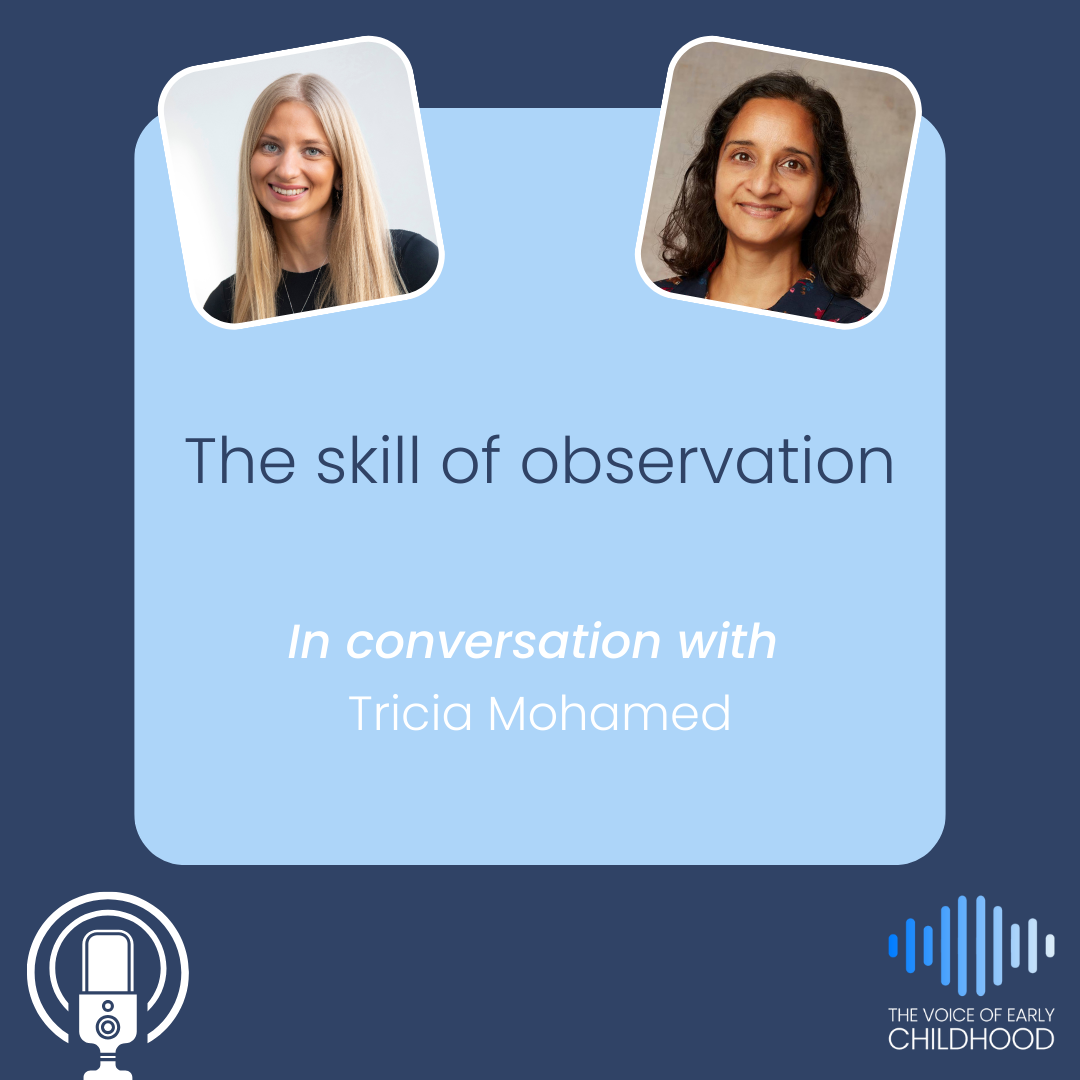
Shownotes Transcript
Tricia Mohamed and Angelica Celinska critically discuss observations in early childhood. They reflect on whether the mere concept of developmental stages risks educators seeing development as linear, regardless of the documents used to inform practice.
They discuss the implications of not working with stages of development in mind, and Tricia questions identifying the need for support, and whether when we diagnose and label children, do we sometimes put a cap on their learning and abilities?
A new way of looking at observations? Tricia and Angelica consider seeing observations in a way which is not the most common practice. Observations are a big part of continuous professional development and unpicking educator's own reflections, knowledge of each unique child and pedagogy. Conducting observations can be part of educators' professional development in itself when done well. For instance, discussions with colleagues can build on our considerations, knowledge and insight of how to best support a child, as well as gaining valuable perspectives outside of our views, and unpicking our own biases.
Episode breakdown:
00:49 - What do we mean by observations? 06:12 - Slowing down and taking time to observe 08:19 - Observing the authentic child and hearing their authentic voice 09:00 - Allowing children to follow their interests 10:30 - The environment allowing for independence in play 10:49 - What do children learn through their interests? 12:40 - Stages of development: The danger of limiting learning but also missing support 13:45 - Block play: The perfect example of learning progression 17:30 - Progressing through stages of development too fast 20:13 - Taking time for mastering skills 21:45 - The limitations of progression and tracking documents 23:20 - Let's focus more on the characteristics of effective learning 26:24 - What if we didn't use stages of development documents? 28:00 - Are we too quick to label and diagnose children? 30:00 - Was there a missed opportunity with the Birth to 5 Matters document?
33:00 - Do we focus too much on what 'normal development' looks like?
36:10 - Exercising criticality, reflection and professionalism through observations
Hear and read more on The Voice of Early Childhood website: www.thevoiceofearlychildhood.com
